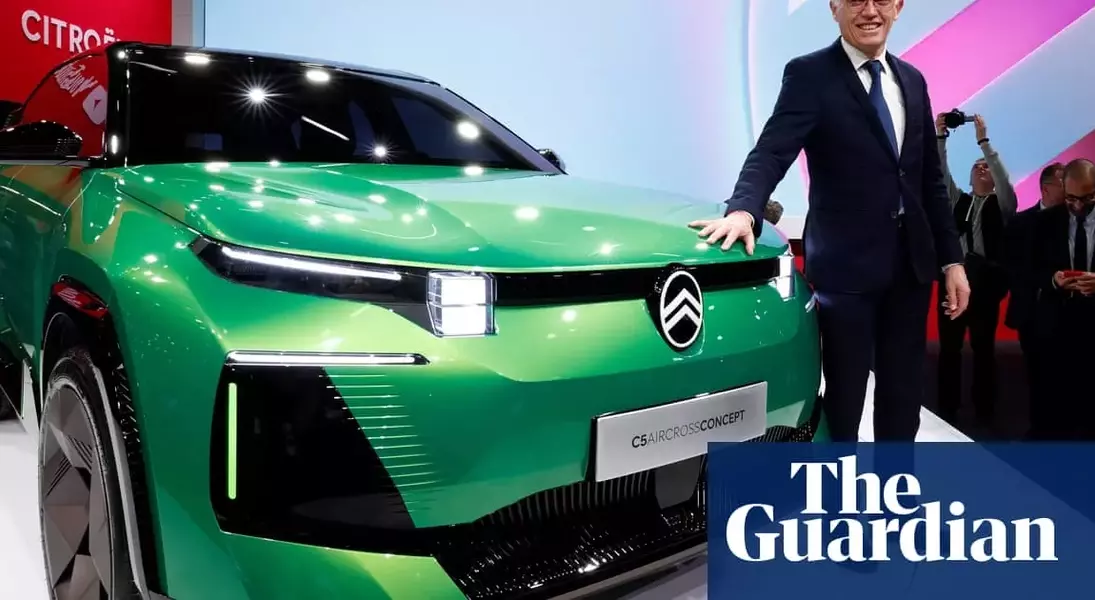Navigating the Electric Vehicle Revolution: Manufacturers Urge Accelerated Transition
The automotive industry is at a critical juncture, as European car manufacturers grapple with the race to phase out traditional combustion engines and embrace the electric vehicle (EV) future. Amid the ongoing tensions within the EU, industry leaders are sounding the alarm, calling for a swifter transition to green driving to stay competitive and profitable.Powering the Future: Manufacturers Demand Faster Shift to Electric Vehicles
Tackling the Transition: Manufacturers Warn Against Prolonging the Shift
The chief executives of two of Europe's largest car manufacturers, Stellantis and Volkswagen, have issued a clear message: the transition to electric vehicles must be accelerated, not delayed. Carlos Tavares, the CEO of Stellantis, which owns brands like Peugeot, Vauxhall, Jeep, and Citroën, warns that prolonging the transition is a "trap" that will only increase production costs for automakers. "Making a longer transition is a big trap," Tavares told the Financial Times. "When you make a longer transition, in fact, you don't replace the old world by the new one. You add up the new world to the old." This sentiment is echoed by Martin Sanger, the sales chief of Volkswagen's passenger car business, who urges governments to move faster towards the end of combustion engines, not slower.The Race to Electrification: Manufacturers Confront Challenges and Opportunities
The next five to 10 years are considered make-or-break for Europe's leading car manufacturers, as they navigate the complex landscape of the EV transition. The European Union has already taken steps to limit the impact of competition from China, imposing tariffs of up to 45% on EV imports. This move has forced several manufacturers to rethink their original plans to phase out internal combustion engines, as they struggle to meet the 2035 ban on new vehicles equipped with them.Adapting to the New Landscape: Manufacturers Explore Strategies for Survival
Faced with these challenges, manufacturers are exploring various strategies to stay competitive and profitable. Tavares, under pressure after a profit warning in September due to weak demand in the US, has embarked on a media blitz, speaking at multiple events. In an interview with the French radio station RTL, Tavares did not rule out the possibility of job cuts and plant closures, stating that keeping up with Chinese competition and maintaining profitability may require such measures. Earlier this year, Stellantis had warned that plants in the UK were at risk.Navigating the Global Landscape: Manufacturers Confront Tariffs and Consumer Concerns
The transition to electric vehicles is not without its global complexities. Stella Li, the executive vice-president of the Chinese conglomerate BYD, criticized the proposed introduction of tariffs by the EU, stating that these measures would ultimately burden consumers. "The problem is the very high price and that the EU now charges tariffs," Li told Reuters. "Who pays the bill? Consumers. So this makes people very concerned. It will stop poorer people from buying." This sentiment highlights the need for a balanced and inclusive approach to the EV transition, ensuring that the benefits of green driving are accessible to all.Embracing the Future: Manufacturers Adapt to the Changing Automotive Landscape
As the automotive industry undergoes a transformative shift, manufacturers are navigating uncharted territory. The Paris motor show has become a battleground, with nine Chinese brands, including BYD and Leapmotor, unveiling their latest models alongside their European counterparts. This influx of Chinese competition underscores the global nature of the EV revolution and the need for European manufacturers to adapt and innovate to maintain their market share.In the face of these challenges, the call for a swifter transition to electric vehicles has become increasingly urgent. Manufacturers are urging governments and policymakers to provide clear commitments and signals that the future is electric, as they strive to meet the evolving demands of consumers and stay ahead of the competition. The road ahead may be uncertain, but the automotive industry's leaders are determined to navigate the electric vehicle revolution and secure their place in the future of transportation.

